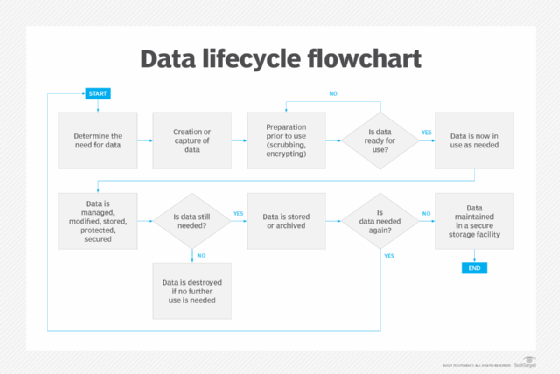Exploring the Value of Data Destruction in the Context of Computer System Security Providers and Protecting Confidential Data
In an age where data violations are progressively typical, the importance of effective data destruction can not be overstated. Organizations has to take on rigorous actions to make sure that delicate info is not only protected throughout its lifecycle but also emphatically gotten rid of when no longer required. The methods used for information elimination, coupled with conformity to lawful standards, play an essential role in preserving privacy and count on. However, the effects of these practices prolong beyond simple compliance, affecting a company's credibility and operational stability in the digital market. What methods can companies implement to improve their information devastation procedures?
Understanding Information Devastation
Data destruction is an important part of computer system safety and security that entails the permanent elimination of data from storage devices to avoid unapproved accessibility and potential data breaches. In a significantly electronic landscape, organizations deal with heightened risks associated with delicate details being improperly accessed or exploited. Reliable information devastation safeguards versus these hazards, ensuring that personal dataâEUR" such as client info, intellectual residential or commercial property, and economic recordsâEUR" can not be recuperated after disposal.
Recognizing the significance of information devastation extends past simple conformity with legal and governing structures; it is crucial for preserving business integrity and count on. When data is incorrectly managed or improperly ruined, the repercussions can be severe, including economic loss, reputational damages, and lawful responsibilities.

Methods of Information Obliteration

One prevalent technique is data cleaning, which involves overwriting existing data with arbitrary patterns several times. This method makes the original data irretrievable, making it a preferred selection for companies seeking to secure secret information.
Another technique is degaussing, which utilizes a powerful magnetic field to interrupt the magnetic domain names on storage devices, efficiently getting rid of the data. This approach is especially efficient for magnetic media but is not suitable to solid-state drives.
Physical destruction is another durable method, including the shredding or squashing of storage space tools. This approach warranties that data healing is practically impossible, making it excellent for very sensitive info.
Lastly, encryption can work as a complementary approach to information removal. By securing data prior to removal, organizations can add an added layer of security, making sure that even if remnants are recovered, they remain unattainable without the decryption trick. Each approach ought to be selected based upon the degree of information level of sensitivity and the particular safety demands of the company.
Legal Compliance and Data Protection
Organizations have to navigate a complex landscape of lawful needs associated with data safety, particularly after applying approaches of information elimination. Different regulations, such as the General Information Security Guideline (GDPR) and the Health And Wellness Insurance Coverage Mobility and Accountability Act (HIPAA), enforce look what i found rigid guidelines on how companies should get rid of and manage of sensitive data. Failure to follow these laws can lead to substantial legal repercussions, including substantial fines and reputational damages.
Data damage processes must be diligently recorded to demonstrate compliance with applicable legislations and standards. This paperwork not only functions as proof of adherence to lawful commitments yet likewise illustrates a dedication to safeguarding delicate info. Organizations should likewise develop clear policies regarding information retention and destruction timelines, ensuring that information is not held longer than essential.

Furthermore, normal audits and analyses of information destruction methods are important to keep conformity and adjust to evolving lawful frameworks (data destruction). By proactively dealing with legal requirements, companies can alleviate dangers related to data breaches and demonstrate their commitment to data protection. Inevitably, prioritizing lawful conformity in information devastation processes is not simply a regulative obligation, yet an essential facet of a durable information safety and security approach
Effect On Service Online Reputation
The online reputation of a company can be substantially affected by its strategy to information destruction and administration. In today's electronic landscape, where data breaches can occur anytime, the failing to correctly dispose of sensitive details can bring about article source extreme repercussions. Organizations that inadequately manage data devastation threat exposing personal customer details, which not only breaks personal privacy regulations however additionally wears down trust fund among stakeholders and customers.
A tarnished credibility can lead to lowered consumer loyalty, as customers end up being hesitant to engage with a business that has demonstrated carelessness in protecting their information. In addition, unfavorable promotion bordering an information breach can have a long-term result, as potential clients could be discouraged by the perceived absence of security. This can result in a direct decrease in profits and market share.
Moreover, services that focus on information destruction as part of their security technique can improve their reputation by showcasing their commitment to protecting delicate details. By embracing stringent data administration practices, companies can not only minimize threats but also place themselves as trustworthy entities in their respective industries, thus strengthening their total brand name picture.

Finest Practices for Secure Disposal
Carrying out ideal techniques for safe disposal of information is crucial for mitigating risks connected with data breaches and making certain conformity with personal privacy guidelines. Organizations needs to embrace a comprehensive data disposal plan that outlines treatments for both digital and physical data devastation.
For physical data storage space tools, such as disk drives, shredding or degaussing is advised to stop information healing. In addition, companies need to keep a chain of safekeeping documents during the disposal process, making sure accountability and traceability of disposed things.
For digital data, utilizing software program that sticks to sector criteria for information wiping is essential. This software application must overwrite existing data multiple times, making recovery virtually difficult. It is likewise essential to confirm the effectiveness of the data devastation procedure through audits or third-party assessments.
Educating staff members on secure disposal practices adds another layer of security, as human error can frequently bring about information exposure. Regularly assessing and updating disposal policies ensures placement with developing laws and technological developments. By executing these ideal techniques, organizations can substantially reduce the danger of unapproved information access and improve their total information protection strategy.
Final Thought
To conclude, information damage is a basic facet of computer system security solutions that guarantees the defense of private details from unapproved gain access to. Carrying out efficient approaches of information obliteration, sticking to lawful compliance, and identifying the effect on business reputation are vital components browse around here of a detailed data security method. By taking on finest techniques for secure disposal, companies can cultivate trust fund with clients and safeguard sensitive information, ultimately adding to a more secure digital landscape.
In an age where information violations are significantly common, the relevance of efficient data destruction can not be overemphasized.Information destruction is a critical element of computer system protection that involves the irreversible removal of data from storage space gadgets to protect against unauthorized accessibility and prospective data violations. Organizations must likewise establish clear plans pertaining to data retention and damage timelines, guaranteeing that data is not held longer than essential.
By proactively addressing legal demands, companies can mitigate threats associated with data violations and show their dedication to data safety and security (data destruction). Inevitably, focusing on lawful compliance in data devastation processes is not simply a regulatory obligation, however an essential facet of a robust data safety and security method